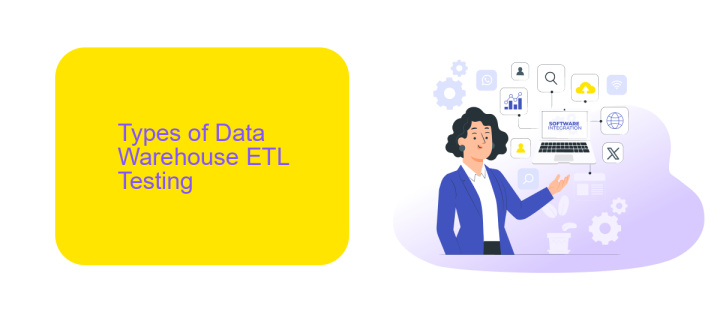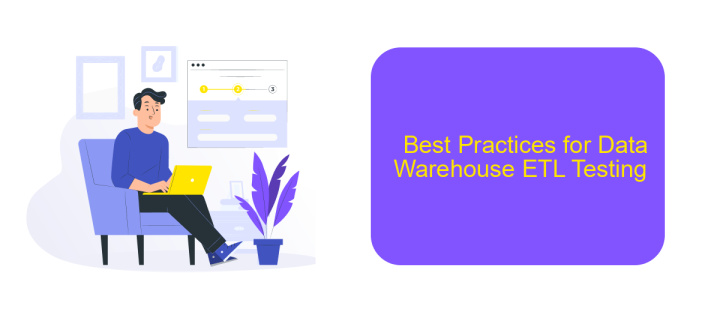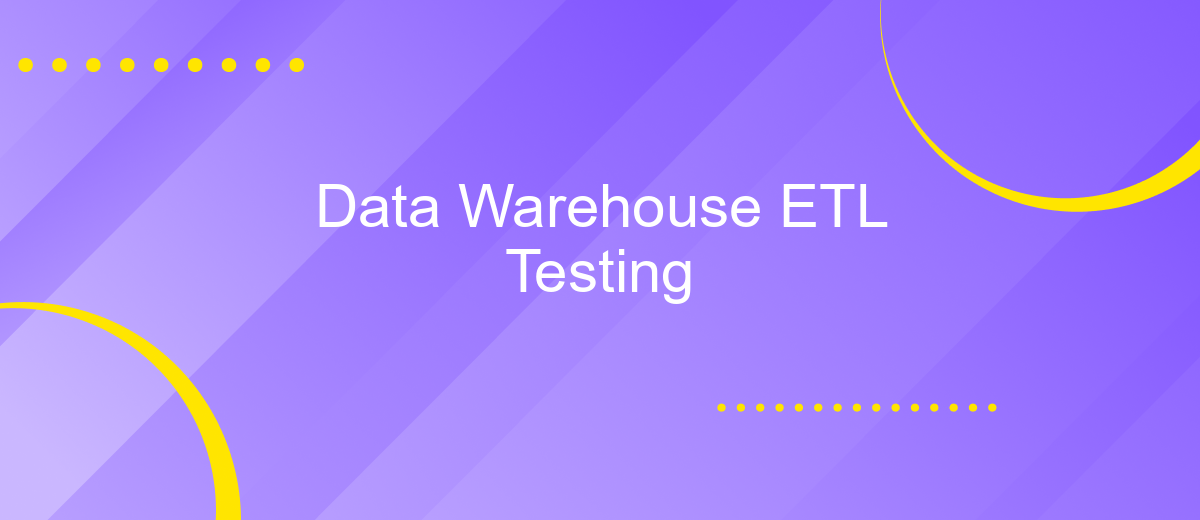Data Warehouse ETL Testing
Data Warehouse ETL (Extract, Transform, Load) Testing is a critical process in ensuring the accuracy and reliability of data within a data warehouse system. This type of testing validates the data extraction from source systems, its transformation according to business rules, and its loading into the target data warehouse. Effective ETL testing ensures data integrity, consistency, and performance, which are essential for informed decision-making.
Introduction to Data Warehouse ETL Testing
Data Warehouse ETL (Extract, Transform, Load) Testing is a crucial process to ensure the accuracy, reliability, and performance of data within a data warehouse environment. ETL testing validates the data movement from source systems to the data warehouse, ensuring that the data is correctly extracted, transformed according to business rules, and loaded into the final destination without any loss or corruption.
- Data Extraction: Ensures accurate and complete data extraction from source systems.
- Data Transformation: Validates that business rules and data transformations are correctly applied.
- Data Loading: Confirms that data is accurately loaded into the data warehouse.
- Performance Testing: Assesses the efficiency and speed of the ETL process.
- Data Quality Testing: Ensures data integrity, consistency, and accuracy.
Effective ETL testing requires robust tools and methodologies. Services like ApiX-Drive can aid in setting up seamless integrations between various data sources and the data warehouse, automating data flows and ensuring that the ETL process is reliable and efficient. By leveraging such tools, organizations can maintain high data quality and support informed decision-making.
Types of Data Warehouse ETL Testing

Data Warehouse ETL Testing encompasses various types, each targeting specific aspects of the ETL process to ensure data integrity and accuracy. One common type is Data Completeness Testing, which verifies that all expected data is loaded into the target system without any loss. Another essential type is Data Accuracy Testing, ensuring that the data transformation rules have been applied correctly and the data in the target system matches the source data.
Additionally, Data Transformation Testing focuses on validating the logic of data transformations, ensuring they produce the expected results. Performance Testing evaluates the efficiency and speed of the ETL process, ensuring it meets the required performance benchmarks. Integration Testing, often facilitated by tools like ApiX-Drive, ensures seamless data flow between different systems and validates the end-to-end process. Finally, Regression Testing ensures that recent changes or updates do not negatively impact existing ETL processes, maintaining overall system stability.
Challenges in Data Warehouse ETL Testing

Data Warehouse ETL testing is a critical aspect of ensuring data integrity and accuracy. However, it comes with several challenges that can complicate the process.
- Data Volume and Complexity: Testing large volumes of data can be time-consuming and resource-intensive. Complex data transformations further add to the difficulty.
- Data Integration: Ensuring seamless integration from multiple sources can be challenging. Tools like ApiX-Drive can help streamline this process by automating data integration tasks.
- Data Quality: Identifying and resolving data quality issues such as duplicates, missing values, and inconsistencies is crucial but often challenging.
- Performance Testing: Ensuring that the ETL process performs efficiently under various loads is essential but can be difficult to simulate accurately.
- Environment Management: Maintaining consistent testing environments that mirror production settings is often a complex task.
Overcoming these challenges requires a combination of robust testing strategies, automated tools, and thorough planning. Leveraging services like ApiX-Drive for data integration can significantly reduce the complexity and enhance the efficiency of ETL testing processes.
Best Practices for Data Warehouse ETL Testing

Effective ETL testing is crucial for ensuring the reliability and accuracy of data warehouses. It involves validating the data extraction, transformation, and loading processes to ensure data integrity and consistency. To achieve this, follow best practices to streamline the ETL testing process and mitigate potential issues.
Firstly, establish a robust testing strategy that includes comprehensive test cases and scenarios. This strategy should cover all aspects of ETL processes, from data extraction to loading. Ensure that your testing environment closely mirrors the production environment to catch potential discrepancies early.
- Automate repetitive testing tasks to increase efficiency and reduce human error.
- Use data profiling tools to understand data quality and identify anomalies.
- Implement continuous integration and continuous deployment (CI/CD) pipelines to automate ETL testing.
- Utilize services like ApiX-Drive for seamless integration and data synchronization between various systems.
- Regularly review and update your test cases to accommodate changes in data sources and business requirements.
By adhering to these best practices, you can ensure that your data warehouse remains a reliable and accurate source of information. Proper ETL testing not only enhances data quality but also supports informed decision-making within your organization.
- Automate the work of an online store or landing
- Empower through integration
- Don't spend money on programmers and integrators
- Save time by automating routine tasks
Conclusion
In conclusion, Data Warehouse ETL testing is a critical component in ensuring the accuracy, reliability, and performance of data integration processes. By rigorously validating each stage of the ETL pipeline, organizations can detect and rectify anomalies early, thereby safeguarding the integrity of their data warehouses. This process not only enhances data quality but also supports informed decision-making across various business functions.
Utilizing advanced tools and services, such as ApiX-Drive, can significantly streamline the ETL testing process. ApiX-Drive offers robust integration capabilities that facilitate seamless data flow between diverse systems, thereby simplifying the testing and validation phases. By leveraging such services, companies can achieve more efficient and effective ETL testing, ultimately leading to a more reliable data warehouse environment. Embracing these practices and tools ensures that businesses can maintain a competitive edge through precise and actionable data insights.
FAQ
What is Data Warehouse ETL Testing?
Why is ETL Testing important in a Data Warehouse environment?
What are the common challenges faced during ETL Testing?
How can automation be implemented in ETL Testing?
What are the key components of an ETL Testing strategy?
Time is the most valuable resource in today's business realities. By eliminating the routine from work processes, you will get more opportunities to implement the most daring plans and ideas. Choose – you can continue to waste time, money and nerves on inefficient solutions, or you can use ApiX-Drive, automating work processes and achieving results with minimal investment of money, effort and human resources.


